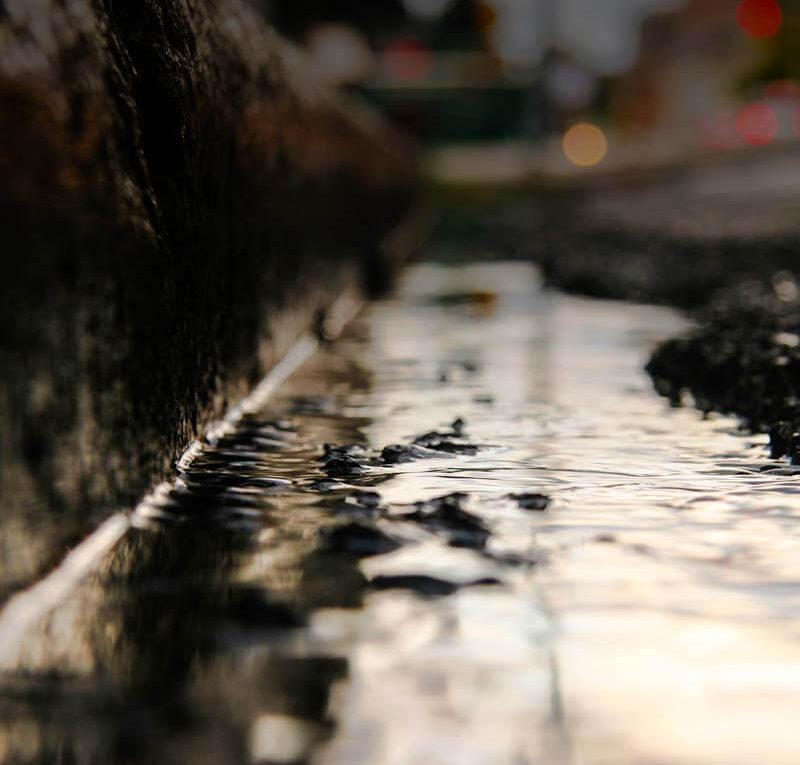Public Education
Debris Can Clog Storm Drains
When storm drains (also known as catch basins) become clogged with leaves and/or other debris, water can no longer drain from the street. This water can then pool along streets and flood intersections and homes, creating significant inconvenience and potential danger for residents and commuters alike
Contrary to popular belief, pet wastes, oil and other materials dumped into catch basins do not go to the wastewater treatment plant, but instead flow directly into streams and rivers. Dumping debris and other material into the storm drain is not only illegal, but contributes pollution to our waterways and causes localized flooding. These pollutants can harm aquatic ecosystems, endanger wildlife, and degrade water quality, making it unsafe for recreational activities like swimming or fishing.
It is important to keep catch basins free of obstructions to prevent street flooding, property damage, and hazards to the traveling public. Residents can play a vital role by avoiding the disposal of waste into drains and reporting clogged or damaged catch basins to local authorities.

How should I dispose of leaves and debris?
10 Things You Can Do to Prevent Stormwater Runoff Pollution
- Use fertilizers sparingly and sweep up driveways, sidewalks, and gutters
- Never dump anything down storm drains or in streams
- Vegetate bare spots in your yard
- Compost your yard waste
- Use least toxic pesticides, follow labels, and learn how to prevent pest problems
- Direct downspouts away from paved surfaces; consider a rain garden to capture runoff
- Take your car to the car wash instead of washing it in the driveway
- Check your car for leaks and recycle your motor oil
- Pick up after your pet
- Have your septic tank pumped and system inspected regularly
